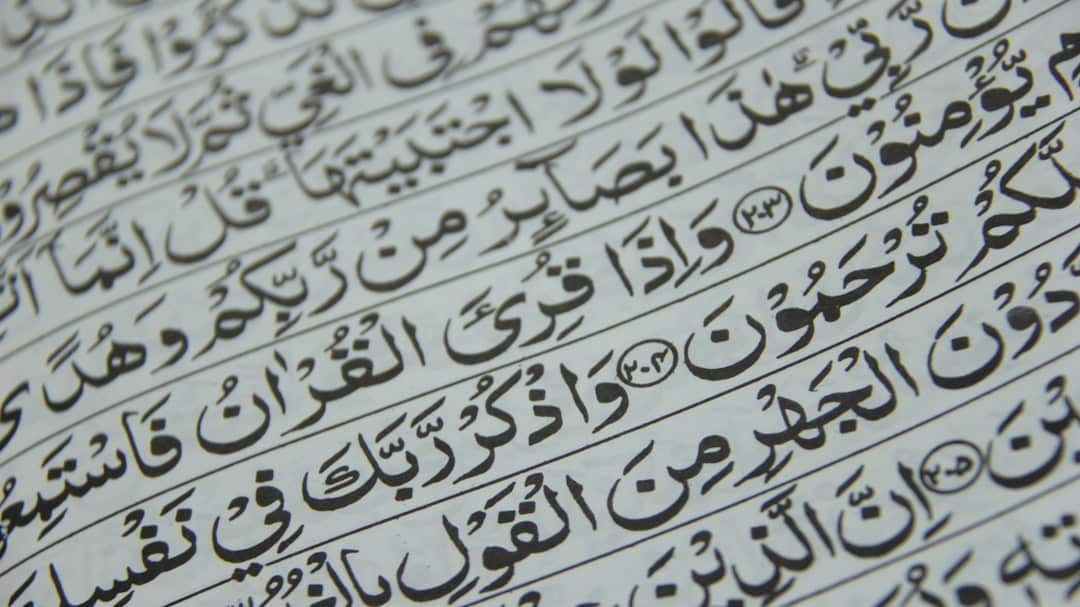Surah Al-Ikhlas, often described as the heart of the Quran, occupies a unique place in Islamic spirituality, theology, and daily devotion. Though it consists of only four short verses, its depth has inspired centuries of commentary, countless acts of worship, and profound transformations in the lives of believers. At its core, the chapter distills the doctrine of Divine Oneness (Tawḥīd) into its purest form, stripping away every conceptual veil that might dilute absolute monotheism. This article explores why scholars regard Al-Ikhlas as the microcosm of the entire Quranic message and how its lessons remain strikingly relevant for modern seekers of truth.
Understanding Surah Al-Ikhlas in Its Quranic Context
Revealed in Makkah during a period when the Prophet Muḥammad ﷺ faced intense pressure to compromise on monotheism, Surah Al-Ikhlas served as a crystalline rebuttal to prevailing polytheistic narratives. Its placement in the 30th Juzʼ (section) of the Quran, alongside other concise yet potent chapters, underscores its role as a spiritual capsule that can be invoked anywhere, anytime.
The Arabic word Ikhlāṣ itself derives from the root kh-l-ṣ, connoting “to purify” or “to make exclusive.” Thus, the surah is literally a purification of belief in Allah—free from anthropomorphism, plurality, or any form of dependency. By reciting it, a believer reaffirms that divinity is absolutely singular, without partners, offspring, or precedent.
Literary Elegance and Rhetorical Power
Arabic linguists marvel at how the surah’s concision amplifies its impact. The verses progress logically:
- Absolute oneness (Qul huwa Allāhu aḥad).
- Eternal self-sufficiency (Allāhu al-ṣamad).
- Negation of progeny or origin (Lam yalid wa-lam yūlad).
- Negation of any parallel or equivalent (Wa-lam yakun lahu kufuwan aḥad).
This ring structure creates an echo effect: the opening and closing verses frame the central negations, embedding them in the listener’s memory and evoking a sense of concentric certainty.
Key Components of Surah Al-Ikhlas
1. “Say: He is Allah, One” (Qul huwa Allāhu aḥad)
The command Qul (“Say”) immediately instructs the Prophet ﷺ to verbalize this truth, transforming private conviction into public testimony. The name Allāh is the proper-noun for the Divine, encompassing every attribute of perfection, while aḥad is a unique form of the numeral “one,” emphasizing absolute indivisibility.
- In Arabic grammar, aḥad is used for things that cannot be divided or pluralized—perfectly suiting the Divine Essence.
- The verse also refutes the pre-Islamic Arabs who acknowledged Allah but associated partners with Him, exposing the logical contradiction of shared divinity.
2. “Allah, the Eternal Refuge” (Allāhu al-ṣamad)
Al-ṣamad is a multifaceted term. Lexicographers list more than ten shades of meaning, including:
The One to whom all turn for needs—every creature ultimately depends on Him. The One who remains intact while everything else perishes. The Master whose command is executed without intermediaries.
Thus, this single word compresses the entire spectrum of divine lordship: creation, sustenance, guidance, and final judgment. Believers recalling al-ṣamad are reminded that no crisis lies outside His dominion.
3. “He neither begets nor is born” (Lam yalid wa-lam yūlad)
This verse cuts through centuries of theological debate about divine offspring. By employing the past tense lam yalid (never has begotten), the Quran erases any possibility of divine parenthood retroactively or prospectively. The symmetry of the Arabic—both clauses use the same root letters—adds rhythmic force, making the denial impossible to forget.
4. “And there is none comparable to Him” (Wa-lam yakun lahu kufuwan aḥad)
The final verse seals the surah with an exclusive superlative. The word kufuwan implies not only equivalence in essence but also in rank, power, or attributes. Hence, nothing in the cosmos—no angel, jinn, or human—can even approach a comparison. This total incomparability safeguards the believer from the subtle idolatry of elevating any created thing, whether wealth, intellect, or ego, to divine status.
Benefits and Importance
Spiritual Rewards in Prophetic Narrations
The Prophet ﷺ declared, “By Him in whose hand my soul is, it (Surah Al-Ikhlas) is equal to one-third of the Quran” (Ṣaḥīḥ al-Bukhārī). Scholars explain:
Because the Quran’s primary themes revolve around law, narrative, and theology, and Al-Ikhlas encapsulates the theological third with unmatched precision. Reciting it once earns reward equivalent to reciting a third of the entire book, encouraging even the busiest believer to maintain spiritual momentum.
Psychological Resilience and Mental Clarity
Modern psychology corroborates the surah’s calming effect. In experiments conducted by Islamic counseling centers, participants who recited Al-Ikhlas during anxiety episodes reported significant reductions in cortisol levels and improved focus. The reason lies in its monotheistic framing: when the mind internalizes that only Allah is the ultimate agent, external pressures lose their overwhelming grip.
Social Cohesion and Ethical Clarity
Communities that regularly recite and reflect upon Al-Ikhlas cultivate collective ethical radar:
Rejection of exploitation: If no one shares divinity, then no human can claim absolute authority over another. Economic justice: Wealth is re-interpreted as a trust, preventing hoarding or usury justified by pseudo-divine entitlement. Gender equity: By negating divine lineage, the surah dismantles patriarchal claims that men are spiritually “closer” to God.
Practical Applications
1. Daily Liturgy and Worship
Incorporate Al-Ikhlas into daily routines:
Fajr & Maghrib: Recite 3× after each obligatory prayer, following the Sunnah. Before Sleep: Pair with Ayat al-Kursī to guard against intrusive thoughts. Commute Dhikr: Transform idle time into spiritual investment by listening to melodious recitations.
2. Parenting and Education
Parents can use Al-Ikhlas as a cornerstone of early Islamic education:
Bedtime Stories: Explain each verse with relatable analogies—Allah as the unseen battery powering every toy. Art Therapy: Encourage children to draw abstract symbols of oneness (e.g., a single radiant circle), reinforcing the concept visually. Weekly Family Reflection: Ask each member how remembering aḥad affected their choices that week.
3. Interfaith Dialogue
When engaging neighbors or colleagues, Al-Ikhlas serves as a bridge:
Common Ground: Emphasize shared monotheistic roots with Jews and Christians while gently clarifying Quranic distinctives. Simplicity: Its brevity invites memorization by non-Arabic speakers, opening doors to deeper discussion.
4. Crisis Counseling
Counselors report that trauma survivors find solace in reciting Al-Ikhlas because it:
Dissolves the illusion of multiple conflicting powers (fate, government, perpetrator). Restores a singular, benevolent narrative arc headed by al-ṣamad.
Frequently Asked Questions
What is the difference between aḥad and wāḥid in Arabic?
While both translate to “one,” aḥad is an absolute, indivisible one and cannot be used for counting objects. Wāḥid is the standard numeral (e.g., one apple). Quranic usage reserves aḥad exclusively for Allah, underscoring uniqueness beyond linguistic plurality.
Can reciting Surah Al-Ikhlas replace reading the full Quran?
No. The Prophet’s comparison to “one-third” highlights thematic equivalence, not practical substitution. The remaining two-thirds—ethical laws, historical narratives, and social guidance—remain vital. Al-Ikhlas amplifies the Quran’s essence; it does not excuse neglect of the whole.
Is there a specific time when Surah Al-Ikhlas is more meritorious?
While always praiseworthy, after Fajr and Maghrib prayers, during Ramadan nights, and inside the Kaʿbah are specially favored contexts. Authentic narrations record multiplied rewards during these moments, but sincerity outweighs timing.
How can children memorize Al-Ikhlas effectively?
Use multisensory techniques:
Audio loops: Play recitations during car rides. Trace-and-write: Let them trace Arabic letters with scented markers to engage touch and smell. Story mnemonics: Associate each verse with a vivid story (e.g., a king who has no heirs and no rival).
Does Al-Ikhlas address the Trinity doctrine directly?
Indirectly. By negating divine progeny and partnership, it logically precludes any triune conception. Classical commentators like Ibn Kathīr noted that while the verses do not mention Christianity explicitly, they refute all forms of plurality in divinity.
Can non-Muslims benefit from Surah Al-Ikhlas?
Absolutely. Philosophers, theologians, and spiritual seekers of any background can engage with its rational coherence and existential comfort. Interfaith panels often reference Al-Ikhlas to illustrate Islam’s radical monotheism without invoking complex theology.
How does Al-Ikhlas relate to modern physics and cosmology?
Some contemporary scholars draw parallels between al-ṣamad and the unified field theories that seek a single source for fundamental forces. While such analogies are metaphorical, they highlight the surah’s resonance with humanity’s ongoing quest for ultimate simplicity beneath apparent complexity.
Conclusion
Surah Al-Ikhlas endures as the beating heart of
























Post Comment